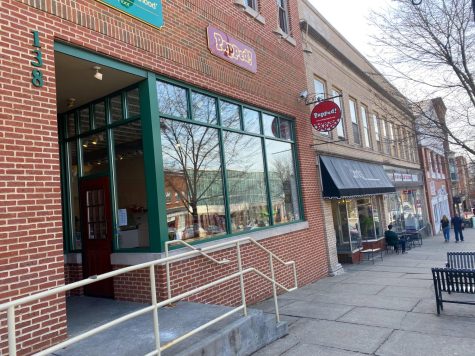Field Schools plan to make cuts as levy fails
May 3, 2006
Field Local School District must figure out how to cut $1.4 million after voters narrowly rejected a 6-mill continual operating levy last night.
After waiting for delayed election results, nervous school officials were informed that only 49.29 percent of voters said yes to the levy, resulting in the levy failing by a margin of 48 votes. Now the district has a projected deficit and will need to report plans to cut funds to the Ohio Department of Education, Superintendent David Redd said last night.
The Board of Education must now figure out what to cut for next fall. Redd said anything that is not teaching and learning is subject to being cut. Transportation would be minimized, students would have to pay to participate in athletics and buildings would have to close at 4 p.m. everyday, halting extra-curricular activities and custodial services, Redd said.
The levy would have collected almost $2 million and raised taxes about $65 per year for an owner of a $100,000 house. The district is looking to replace a levy that expired in December, but it will keep collecting at 3.85-mills until the end of the year.
“These results seem to reflect the state of education in Ohio,” Field Board of Education President Shirley Mars said. “The levy affects the whole community, not just the students. The community owns the schools and if the schools are not operating, well then, property value drops.”
Redd said there is no relief for the district until the voters pass a levy. Field has one more chance for voters to approve the levy in August, before budget cuts would be implemented. However, he said some teachers may leave the district by then.
District Treasurer Tom Baker said he was surprised so many voters rejected the levy because they have been so supportive in the past. Although this was the district’s first attempt at a continual ballot, voters have approved a 6-mill levy every time it has come on the ballot since 1986. Field has another operating levy that will expire in December 2008.
“Right now we’re working with a distinct disadvantage because we have to keep going back to voters every 3-5 years,” Baker said. “This continual levy would have given us more of a base to collect on, which gets us out of having to run constant levy campaigns.”
Mars said the Board of Education would have to re-evaluate whether it would put the same 6-mill continuing levy on the ballot in August. She said it would have to meet at least twice before making a decision. She said the district also has a hurdle to get over in the community.
“We want to get out as much correct information as we can and educate the community about our needs,” Mars said.
Contact public affairs reporter Sean Joseph at [email protected].























